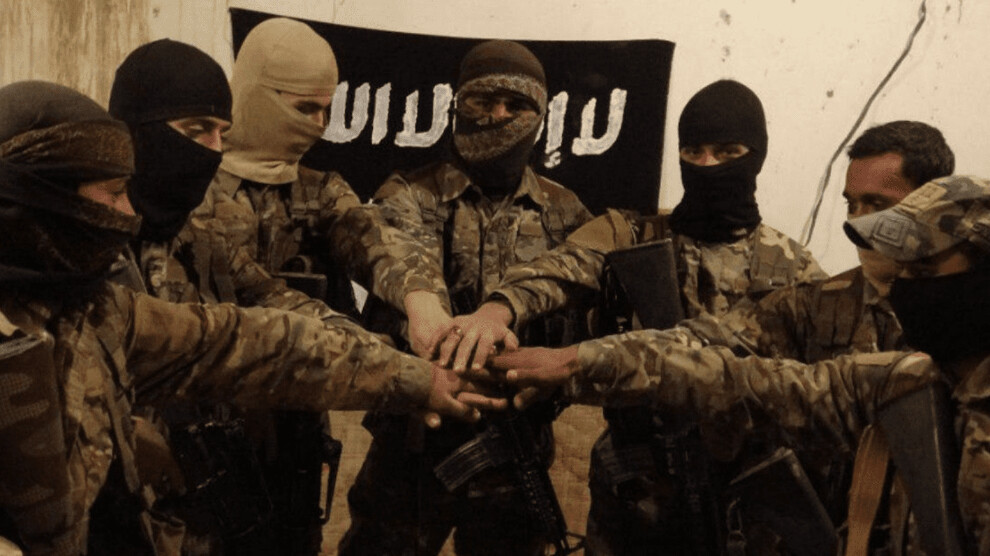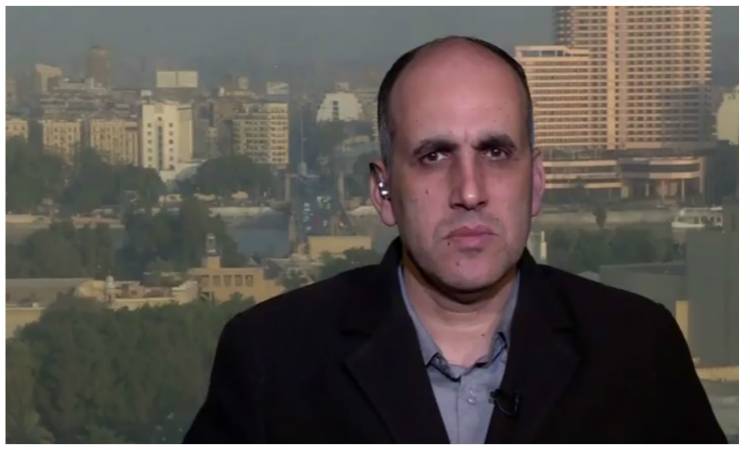Egyptian researcher: ISIS is still active in 12 regions
Ahmet Ban, an expert on jihadist mercenary groups, said ISIS is still active in 12 centers in Syria, Iraq and North Africa.
Ahmet Ban, an expert on jihadist mercenary groups, said ISIS is still active in 12 centers in Syria, Iraq and North Africa.

Egyptian researcher Ahmet Ban answered ANHA's questions regarding ISIS presence in the Middle East.
Ban pointed out that the organization is trying to recover and is particularly active in different countries of Asia and Africa. Ban stated that there is no international strategy to eliminate ISIS altogether, which enables the organization to expand and find personnel and financial resources.
Ban answered questions regarding the new organizational tactic of ISIS, the regions in which it is trying to be effective and possible developments:
Following its territorial defeats, ISIS chose the deserts of Syria and North Africa for reconstruction. How do you evaluate this situation?
It is natural for ISIS to choose the deserts and the countryside in Syria and North Africa for reconstruction. The organization made this plan to recover after its defeat in the military field. Thus, it aimed to create resources in new regions, to create a new strategy after its military defeat and to reduce the pressure on it.
Will ISIS prefer to stay out of sight or follow a plan to establish a new caliphate?
I do not think the organization will remain anonymous. It is still active in more than 12 centers such as Sinai, Yemen, Africa, Nigeria region, around Lake Chad, Central Africa, Burkina Faso, Mali, Niger, East Africa, Somalia and Khorasan province in Pakistan, Afghanistan, Southeast Asia, the Philippines, the Caucasus, Libya and Tunisia. Even before his death al-Baghdadi had declared that ISIS established its extensions in Turkey and Saudi Arabia. In this context, ISIS is striving to exist and has a great recovery power.
The idea of ISIS to create a caliphate is natural because this is the basis of the organization's ideology. I don't think they will let go of this idea.
How does ISIS, which lost its oil resources, secure its financing?
The organization created a large financial network during its stay in Iraq. Some intelligence reports offer clues as to how this money network works.
Unfortunately, this organization has financial resources that allow it to compensate for its financial losses. Oil was not the only source of the organization. In addition, it continues its attempts to create new financial resources.
What are ISIS' current goals after the defeat it suffered two years ago?
The main purpose of the ISIS in this period is to settle in new areas, to strengthen militarily, to increase the number of its members and to continue its attacks. It is clear that it pursues these goals in Syria and Iraq. Moreover, it is observed that the organization increased its attacks after its military defeat.
Is there any possibility that newly elected US President Joe Biden will revive ISIS?
I do not think there will be a direct relationship between the restructuring of ISIS and the election of Biden. However, there are doubts about the impact of the US policy on ISIS. The US intervention in Iraq and in Iran through Iraq was instrumental in the emergence of ISIS ideology in Iraq. I think that the strategy announced by Biden will have a great impact on the organization's presence in Iraq.
At the moment, we are faced with a situation that a common international strategy is not formed in the fight against ISIS. Before, all powers united against the organization and the so-called state established by ISIS was destroyed. But now we are faced with an ISIS that has recovered by taking advantage of the international and regional contradictions.
